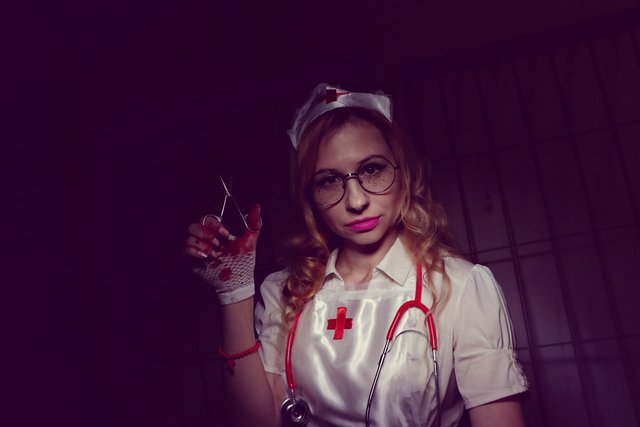
My nurses are humans too, they are not perfect, they have limitations, I forgive them for my own sake.
Mis enfermeras también son humanos, no son perfectas, tienen limitaciones, las perdono por mi propio bien.
I do love my nurses because even though they are paid for their services and use us local patients to be a subject of training for their ultimate goal of working abroad as professional nurses because of a very good pay. They are actually making good money for working as a nurse abroad and they are always on demand. That is why they are one of the unsung heroes of my country because of their dollar remittances which is a big factor in supporting the economy of my country. Without the dollar inflows, my country would have been in economic ruin a long time ago. Nurses are hard-working bunch of professionals within their chosen medical specialty although they also are humans so it also affects their professionalism, like for example they make fun of some patients too like me for many different reason from the flip-flops that I wear and up to my hair, my speech impediment, and even with the food that I eat and how I eat it. There are times in the past that I would struggle to eat because of the overgrowth of bone in my mouth, I would struggle to chew it because it will just go out from my mouth, I had to suck it in and that would create a noise. So upon my meal time at dialysis they would get up from their post and go elsewhere or go out or sit away from where I am sitting, yes it offends me, they thought that I am not noticing it, however I really do. There is also this instance where a fat nurse is mimicking how I speak from that time because I was also struggling with my speech impediment and they were laughing. I have to endure it, these nurses are literally holding my life hostage so I must "let it slide" otherwise I will get angry if not slowly killed by their retaliation.
Me encantan mis enfermeras porque aunque les pagan por sus servicios y nos utilizan a nosotros, los pacientes locales, como objeto de formación para su objetivo final de trabajar en el extranjero como enfermeras profesionales debido a una muy buena paga. En realidad, ganan un buen dinero por trabajar como enfermeras en el extranjero y siempre están en demanda. Por eso son uno de los héroes olvidados de mi país, porque sus remesas de dólares son un factor importante para apoyar la economía de mi país. Sin la entrada de dólares, mi país estaría en la ruina económica desde hace mucho tiempo. Las enfermeras son profesionales muy trabajadoras en su especialidad médica, aunque también son seres humanos, lo que afecta a su profesionalidad, por ejemplo, se burlan de algunos pacientes, como yo, por muchas razones, desde las chanclas que llevo hasta mi pelo, mi impedimento para hablar, e incluso la comida que ingiero y cómo la ingiero. En el pasado había momentos en los que me costaba comer debido al crecimiento excesivo de hueso en mi boca, me costaba masticar porque simplemente se salía de mi boca, tenía que aspirar y eso creaba un ruido. Así que a la hora de comer en la diálisis se levantaban de su puesto y se iban a otro sitio o salían o se sentaban lejos de donde yo estaba sentada, sí, me ofende, pensaban que no me daba cuenta, sin embargo realmente lo hago. También hay un caso en el que una enfermera gorda está imitando mi forma de hablar de aquella época porque yo también estaba luchando con mi impedimento del habla y ellos se reían. Tengo que soportarlo, estas enfermeras tienen literalmente mi vida como rehén, así que debo "dejarlo pasar", de lo contrario me enfadaré, si no me matarán lentamente, por sus represalias.

I suffered a lot of insults from my nurses, making fun from my apparel and most particularly about my handicap. But I guess that it is a proof that people are prejudice.
Sufrí muchos insultos por parte de mis enfermeras, burlándose de mi vestimenta y más particularmente de mi discapacidad. Pero supongo que es una prueba de que la gente tiene prejuicios.
These dialysis nurses actually saves lives multiple times in a daily basis, except Sunday, that is a day of rest because there is no dialysis on Sundays. The patient's lives depends on the level of skill of these nurses, any level of incompetence will mean life or death. A dialysis patient can die immediately if my nurses would be slow to react. The good news is that the mitigation procedure is always simple, the usual problem that can get corrected immediately was the hypotension caused by anywhere from low blood sugar or a hypotensive effect of some medicines or the more than adequate removal of excess fluids which in some cases will lead to hypotension, it is corrected by infusion of salt solution (NSS) into the patient's blood. But some patients can also die while being treated because of underlying disease process like for example if the patient has a heart disease, they are prone to heart complication, i.e., heart attack because of the dialysis process where it has a direct effect on how the heartbeats of a diseased heart, that is why their treatment process is milder compared to other patients with no heart issues other than having a high blood pressure which is common and the main cause of mortality among dialysis patients because of a constant overburden due to excess of water and sodium in the body, particularly if the patient is not compliant to medications, important mineral and vitamin supplements which acts as a proactive and preventative therapy to avoid complications especially for the bone health, frequency and adequacy of dialysis whereas the more frequent dialysis is, the better the well-being of the patient will be.
Estas enfermeras de diálisis salvan vidas varias veces al día, excepto el domingo, que es un día de descanso porque no hay diálisis los domingos. La vida de los pacientes depende del nivel de habilidad de estas enfermeras, cualquier nivel de incompetencia significará la vida o la muerte. Un paciente de diálisis puede morir inmediatamente si mis enfermeras tardan en reaccionar. La buena noticia es que el procedimiento de mitigación es siempre simple, el problema habitual que puede ser corregido de inmediato fue la hipotensión causada por cualquier parte de la baja de azúcar en la sangre o un efecto hipotensor de algunos medicamentos o la eliminación más que adecuada del exceso de líquidos que en algunos casos dará lugar a la hipotensión, se corrige mediante la infusión de solución salina (NSS) en la sangre del paciente. Pero algunos pacientes también pueden morir durante el tratamiento debido a un proceso de enfermedad subyacente como, por ejemplo, si el paciente tiene una enfermedad del corazón, son propensos a la complicación del corazón, es decir, ataque al corazón debido al proceso de diálisis, que tiene un efecto directo sobre los latidos del corazón enfermo, por lo que su proceso de tratamiento es más suave en comparación con otros pacientes sin problemas de corazón, aparte de tener una presión arterial alta, que es común y la principal causa de mortalidad entre los pacientes de diálisis debido a una sobrecarga constante debido al exceso de agua y sodio en el cuerpo, especialmente si el paciente no cumple con la medicación, los suplementos minerales y vitamínicos importantes que actúan como una terapia proactiva y preventiva para evitar complicaciones especialmente para la salud ósea, la frecuencia y la adecuación de la diálisis mientras que cuanto más frecuente sea la diálisis, mejor será el bienestar del paciente.
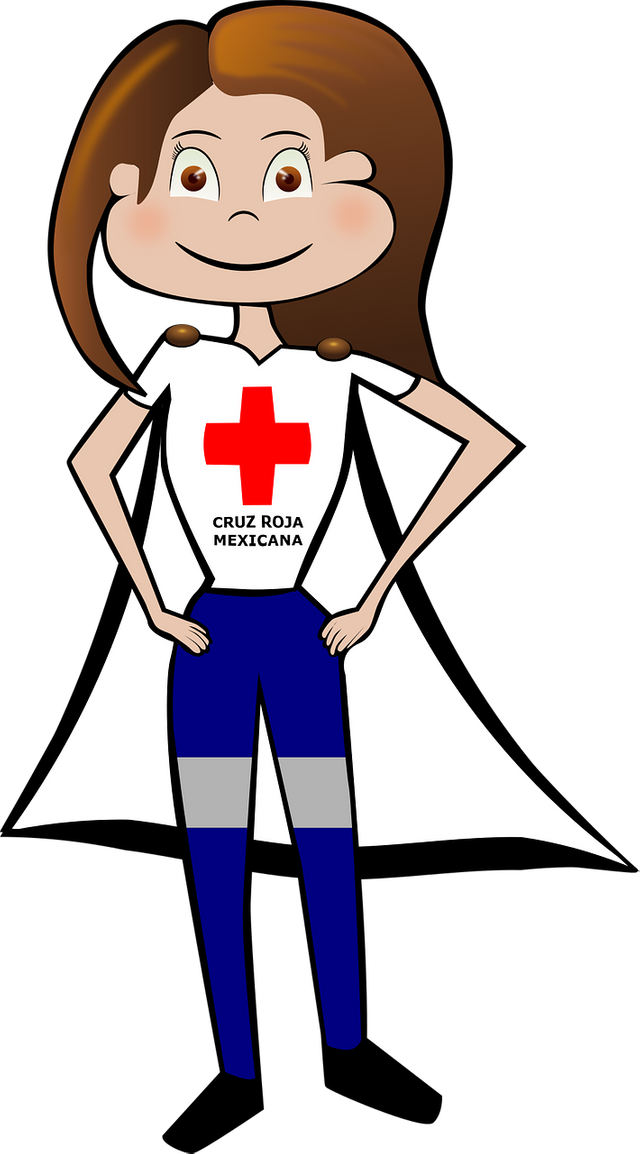
I owe my life to my nurses, they saved me from blackouts many times over and because of that they are truly heroes of society in general even though I do not fully rely on their own judgement to influence my well-being.
Le debo mi vida a mis enfermeras, me han salvado muchas veces de los desmayos y por ello son verdaderas heroínas de la sociedad en general, aunque no confíe plenamente en su criterio para influir en mi bienestar.
Upon arrival to the dialysis center, before we are let to proceed inside the dialysis treatment area, we must stay to the "Triage" and wait for an assigned dialysis nurse so that we can get interviewed for symptoms regarding the CoViD pandemic, we must tell the truth so that if positive for getting the CoViD virus we will get to be treated for it but in another hospital because our dialysis center cannot accommodate dialysis patients with CoViD. So if we have some symptoms we will have to get tested and if we are found to e positive with CoViD we will get referred to a specified hospital to get our treatments there until we are tested negative again. From that point we can go back to our original dialysis center. Lying about our symptoms will get us in trouble like getting sued especially if we will cause a CoViD breakout in the dialysis center. It is indeed a hard process but we have to abide by the Department of Health of the government for this new normal for hospitals to impose to the patients. Also a new standard that I do think which will not go away anytime soon particularly within the hospitals is the wearing facemasks and face shields, it was hard in getting used ot it but we can do it for the sake of prevention and health safety.
Al llegar al centro de diálisis, antes de que se nos permita entrar en el área de tratamiento de diálisis, debemos permanecer en el "Triage" y esperar a que se nos asigne una enfermera de diálisis para que podamos ser entrevistados por los síntomas relacionados con la pandemia de CoViD, debemos decir la verdad para que, si damos positivo en el virus de CoViD, podamos ser tratados por ello pero en otro hospital porque nuestro centro de diálisis no puede acomodar a los pacientes de diálisis con CoViD. Por lo tanto, si tenemos algún síntoma, tendremos que hacernos la prueba y, si damos positivo en el virus de la CoViD, se nos remitirá a un hospital específico para que nos traten allí hasta que volvamos a dar negativo en la prueba. A partir de ese momento podremos volver a nuestro centro de diálisis original. Mentir sobre nuestros síntomas nos meterá en problemas, como por ejemplo que nos demanden, especialmente si provocamos un brote de CoViD en el centro de diálisis. Es un proceso difícil, pero tenemos que cumplir con el Departamento de Salud del gobierno para esta nueva normalidad que los hospitales imponen a los pacientes. También una nueva norma que creo que no desaparecerá pronto, especialmente en los hospitales, es el uso de mascarillas y protectores faciales.
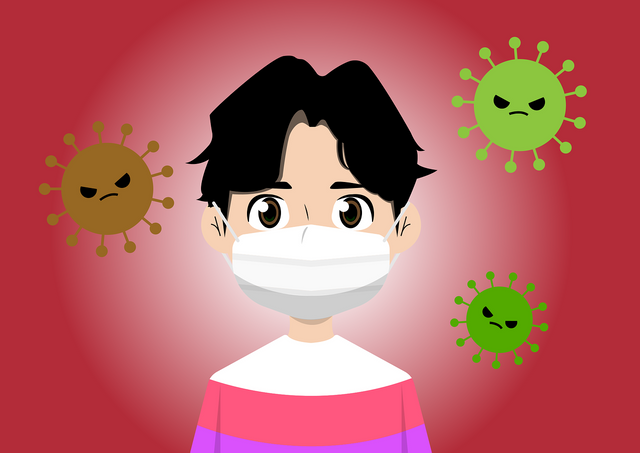
The onset of the coronavirus has made it hard for many patient to get treated immediately, they have to pass a series of preventative steps in order to curve the infection transmission. So now, some protocols must be followed and it makes things complicated and expensive.
La aparición del coronavirus ha dificultado el tratamiento inmediato de muchos pacientes, que tienen que pasar una serie de pasos preventivos para curar la transmisión de la infección. Así que ahora hay que seguir unos protocolos que complican y encarecen las cosas.
Upon entering the waiting area of the dialysis center, the patients would go straight to the weight scale, it is a big scale for measuring weight which can accommodate wheelchairs where people like me which are immobile for some reason can use it with ease without leaving our wheelchair. So we can just be rolled unto it and see our weight in the small digital screen or display. So my weight will be measured by not counting the weight of the wheelchair plus the post which is attached to the wheelchair's back for hanging I.V. fluids. The weight of the wheelchair is 15.3 Kilos, then my weight which is combined with extra fluids in my body will be read by the weigh scale anywhere from 52.3 Kilos to 53.3 Kilos. From my last dialysis session, I had the "pre-dialysis" weight of 52.6 Kilos, then the nurse will aske me what was my weight, I told her that, then she asks me how much fluids that I want to be removed from my body, I told her a specific amount of 2.9 Kilos. After that I can proceed to the dialysis treatment area, it is just beside the waiting area which is divided only by a wall.
Al entrar en la sala de espera del centro de diálisis, los pacientes se dirigen directamente a la báscula, que es una gran báscula para medir el peso que puede acomodarse a las sillas de ruedas y que las personas que, como yo, estamos inmóviles por alguna razón podemos utilizar con facilidad sin tener que dejar nuestra silla de ruedas. Así que podemos estar rodando hacia ella y ver nuestro peso en la pequeña pantalla digital o display. Así que mi peso se medirá sin contar el peso de la silla de ruedas más el poste que se fija en el respaldo de la silla para colgar los líquidos intravenosos. El peso de la silla de ruedas es de 15,3 Kilos, entonces mi peso que se combina con los fluidos adicionales en mi cuerpo será leído por la báscula en cualquier lugar de 52,3 Kilos a 53,3 Kilos. En mi última sesión de diálisis, mi peso antes de la diálisis era de 52,6 kilos, y la enfermera me preguntó cuál era mi peso, y le dije eso, y luego me preguntó cuántos fluidos quería que se eliminaran de mi cuerpo, y le dije una cantidad específica de 2,9 kilos. Después de eso puedo pasar a la zona de tratamiento de diálisis, que está justo al lado de la zona de espera, dividida sólo por una pared.

The "Triage" is a worrisome and terrifying place to be into prior to your dialysis schedule only if you have CoViD symptoms. If you do, then it will be an expensive situation to deal with because dialyzers will not be re-used and then you will given extra medication, plus the fact that you can get worse and die.
El "Triage" es un lugar preocupante y aterrador en el que hay que estar antes de su programa de diálisis sólo si tiene síntomas de CoViD. Si los tiene, entonces será una situación costosa de manejar porque los dializadores no serán reutilizados y entonces se le dará medicación extra, además del hecho de que puede empeorar y morir.
After establishing myself unto my usual place in the dialysis room and trying to be as comfortable as possible, using a double blanket now because the A/C is working now and it gets really cold enough that I would shiver during the whole four hours of dialysis time, one blanket will not be effective to shield me from the cold air coming from the A/C, that is why I am using two blankets now instead of only using one. I am also wearing two Pyjamas and a very long socks which also helps me with insulating my body effectively from the freezing air. I would also take my old thermos bottle from my bag with lukewarm brewed Coffee in it which I can drink from with just using one hand if my mouth would feel so parched because of the type of dialysis treatment that I am getting. I am on a "profile" treatment setting where the nurses would literally put sodium chloride in my system, it affects the blood pressure and makes it high, aside from preventing muscle cramps. That treatment type is a peeve for me because it makes me feel so thirsty because of additional sodium in my system, it is ironic really because my nurses are telling us not to eat salty food but they are the ones forcing us to directly take it through their infamous dialysis treatment which is called "Profiling", basically it is a "Hypernatremia" torture, a very bad technique at dialysis where the patient would feel a burning thirst while and after the dialysis treatment.
Después de establecerme en mi lugar habitual en la sala de diálisis y tratar de estar lo más cómodo posible, estoy usando una manta doble porque el aire acondicionado está funcionando ahora y se pone realmente frío lo suficiente como para temblar durante las cuatro horas de diálisis, una manta no será eficaz para protegerme del aire frío procedente del aire acondicionado, es por eso que estoy usando dos mantas ahora en lugar de usar sólo una. También llevo dos pijamas y unos calcetines muy largos que también me ayudan a aislar mi cuerpo eficazmente del aire helado. También saco mi vieja botella termo de mi bolso con café tibio del que puedo beber con una sola mano si mi boca se siente tan reseca debido al tipo de tratamiento de diálisis que estoy recibiendo. Estoy en un tratamiento de "perfil" en el que las enfermeras literalmente ponen cloruro de sodio en mi sistema, que afecta a la presión arterial y la hace alta, además de prevenir los calambres musculares. Ese tipo de tratamiento me molesta porque me hace sentir mucha sed debido al sodio adicional en mi sistema, es realmente irónico porque mis enfermeras nos dicen que no comamos comida salada pero son ellas las que nos obligan a tomarla directamente a través de su infame tratamiento de diálisis que se llama "Perfil", básicamente es una tortura de "Hipernatremia", una técnica muy mala en diálisis donde el paciente sentiría una sed ardiente mientras y después del tratamiento de diálisis.
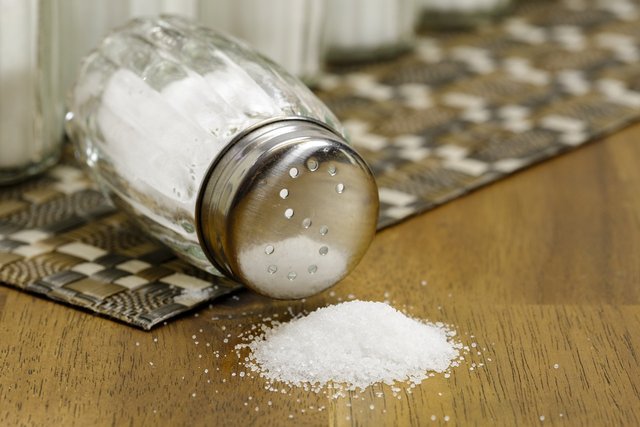
I have a defeating battle with sodium, a tool of my nurses so that their jobs will get easier, to the detriment of the patients. An stupid technique to raise blood pressure while asking the patients not to eat salty foods.
Tengo una batalla de derrota con el sodio, una herramienta de mis enfermeras para que su trabajo sea más fácil, en detrimento de los pacientes. Una técnica estúpida para elevar la presión arterial mientras se pide a los pacientes que no coman alimentos salados.
That is why after going home I would have to quench my thirst because otherwise the burning thirst will remain, when I would sweat I will feel the salt crystals on my skin after some of the water from the sweat evaporates. A normal dialysis procedure was to set the sodium setting to less than "135", 135 to 145 milliequivalents per liter (mEq/L) was the range of normal salt concentration in the blood. My nurses are setting it as high as 148 for me, so I would feel like I had eaten a ton of "Lays™" potato chips without drinking some beverages. Setting the Sodium to less than 135 is the standard, it cures hypertension (if the patient is not "waterlogged") and it makes the patient to experience a fresher feel and that breath that smells like a tap water, the consequence will be having cramps. However in the other hand if they are "jacking" the sodium setting, the patient will a feel burning thirst and the breath would smell like acidic. My nurses are not following the standard now with regards to the "Sodium" setting so that they will not have to deal with patients getting cramps because it will give them an additional hard time with their work, it does infuriate me because I have to suffer because of the way they operate now, it was not cases before when i was just a new patient there.
Por eso, al volver a casa tenía que saciar la sed porque, de lo contrario, la sed ardiente permanecería, cuando sudara sentiría los cristales de sal en la piel después de que se evaporara parte del agua del sudor. Un procedimiento normal de diálisis era ajustar el sodio a menos de "135", 135 a 145 miliequivalentes por litro (mEq/L) era el rango de concentración normal de sal en la sangre. Mis enfermeras lo fijan en 148 para mí, así que me sentiría como si hubiera comido una tonelada de papas fritas "Lays™" sin tomar algunas bebidas. Ajustar el sodio a menos de 135 es el estándar, cura la hipertensión (si el paciente no está "encharcado") y hace que el paciente experimente una sensación más fresca y ese aliento que huele a agua del grifo, la consecuencia será tener calambres. Sin embargo, si se "dispara" el ajuste de sodio, el paciente sentirá una sed ardiente y el aliento olerá a ácido. Mis enfermeras no están siguiendo la norma ahora con respecto a la configuración de "Sodio" para que no tengan que lidiar con los pacientes que tienen calambres porque les dará un tiempo duro adicional con su trabajo, me enfurece porque tengo que sufrir por la forma en que operan ahora, no era casos antes cuando yo era sólo un nuevo paciente allí.
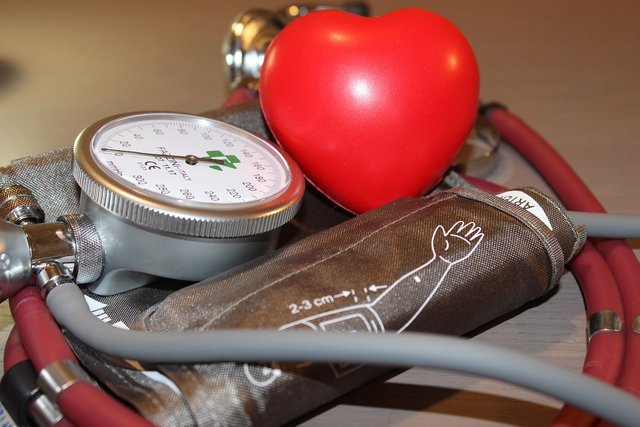
Sodium chloride effectively raises blood pressure and my nurses are the cause of it. It makes me angry for the reason that it can cause me my death considering that I have a constant struggle in normalizing it naturally by perspiration and religiously adhering to my strict diet.
El cloruro de sodio eleva efectivamente la presión arterial y mis enfermeras son las causantes de ello. Me da rabia por la razón de que puede causarme la muerte teniendo en cuenta que tengo una lucha constante para normalizarla de forma natural mediante la perspiración y cumpliendo religiosamente mi estricta dieta.
I also have a lot of candy on the side that I use to prevent my "blood sugar" from dropping and ending up with hypotension. The dialysis process also removes sugar from the blood as well as water-soluble vitamins and minerals, as well as other nutrients that the body needs. For this reason, I have to make sure I don't starve and eating some sweets while I'm "hooked" on the dialysis machine helps me not to suffer from the aforementioned complication and to complete my treatment hours. The hospital does not allow patients to continue eating inside the treatment area, including nursing staff. After my dialysis treatment is done and my blood is returned back from the blood lines, the "cannulated fistula" skin has been covered, I will try to fold my blankets and put them back in my bag, and then my thermos too. My blood pressure will be read again and when it is not too low I will then be allowed to go home. A wheelchair will pick me up to be weighed again "post-dialysis" and I will be taken to our car where my father is patiently waiting for me. We will return again after a few days if God wills it for me, that is my dialysis life.
También tengo un montón de caramelos aparte que utilizo para evitar que mi "azúcar en sangre" baje y acabe en hipotensión. El proceso de diálisis también elimina el azúcar de la sangre, así como las vitaminas y minerales hidrosolubles, además de otros nutrientes que el cuerpo necesita. Por esta razón, tengo que asegurarme de no pasar hambre y comer algunos dulces mientras estoy "enganchado" a la máquina de diálisis me ayuda a no sufrir la citada complicación y a completar mis horas de tratamiento. El hospital no permite que los pacientes sigan comiendo dentro del área de tratamiento, incluido el personal de enfermería. Una vez terminado mi tratamiento de diálisis y devuelta mi sangre de las vías sanguíneas, cubierta la piel de la "fístula canulada", intentaré doblar mis mantas y guardarlas de nuevo en mi bolsa, y luego también mi termo. Me volverán a tomar la tensión y, si no es demasiado baja, me dejarán ir a casa. Una silla de ruedas me recogerá para pesarme de nuevo "después de la diálisis" y me llevarán a nuestro coche, donde mi padre me espera pacientemente. Volveremos de nuevo después de unos días si Dios quiere para mí, esa es mi vida de diálisis.

My life had become a constant game of gamble, however ALL odds are against me and it is the most peculiar kind of life to behold.
Mi vida se había convertido en un juego constante de apuestas, sin embargo TODAS las probabilidades están en mi contra y es el tipo de vida más peculiar de contemplar.
Being a dialysis patient is the lowest thing that can happen to a person...

...by going to where you do not want to go and mingle with people that don't care about you but has a control over your well-being and your life.
Translated in Filipino [Taglish]
Mahal ko ang aking mga nars dahil kahit na binayaran sila para sa kanilang mga serbisyo at ginagamit kaming mga lokal na pasyente upang maging paksa ng pagsasanay para sa kanilang pangwakas na layunin na magtrabaho sa ibang bansa bilang mga propesyonal na nars dahil sa napakagandang suweldo. Talagang kumikita sila ng malaki para sa pagtatrabaho bilang isang nars sa ibang bansa at palagi silang on demand. Kaya naman isa sila sa mga unsung heroes ng aking bansa dahil sa kanilang dollar remittances na malaking salik sa pagsuporta sa ekonomiya ng aking bansa. Kung wala ang pagpasok ng dolyar, matagal na sanang nasira ang ekonomiya ng aking bansa. Ang mga nars ay masisipag na grupo ng mga propesyonal sa loob ng kanilang napiling medikal na espesyalidad bagaman sila rin ay mga tao kaya nakakaapekto rin ito sa kanilang propesyonalismo, tulad ng halimbawa ay pinagtatawanan nila ang ilang mga pasyente na katulad ko sa maraming iba't ibang dahilan mula sa mga flip-flops na aking isinusuot at hanggang sa buhok ko, sa pagsasalita ko, at maging sa pagkain na kinakain ko at kung paano ko ito kinakain. May mga panahon noon na hirap akong kumain dahil sa sobrang paglaki ng buto sa bibig ko, hirap akong nguyain dahil lalabas lang sa bibig ko, kailangan kong sipsipin at gagawa ng ingay. . Kaya sa oras ng pagkain ko sa dialysis ay tatayo sila sa kanilang puwesto at pupunta sa ibang lugar o lalabas o uupo sa kinauupuan ko, oo nakakasakit ako, akala nila hindi ko ito napapansin, gayunpaman ginagawa ko talaga. There is also this instance na ginagaya ng isang matabang nurse ang pagsasalita ko from that time dahil nahihirapan din ako sa speech impediment ko at nagtatawanan sila. Kailangan kong tiisin, literal na hawak ng mga nurse na ito ang buhay ko na hostage kaya dapat "hayaan ko itong dumausdos" kung hindi ay magagalit ako kung hindi dahan-dahang pinapatay sa kanilang ganti.
Ang mga dialysis nurse na ito ay talagang nagliligtas ng buhay ng maraming beses sa isang araw, maliban sa Linggo, iyon ay isang araw ng pahinga dahil walang dialysis tuwing Linggo. Ang buhay ng pasyente ay nakasalalay sa antas ng kasanayan ng mga nars na ito, anumang antas ng kawalan ng kakayahan ay mangangahulugan ng buhay o kamatayan. Ang isang dialysis na pasyente ay maaaring mamatay kaagad kung ang aking mga nars ay mabagal sa pagre-react. Ang magandang balita ay ang pamamaraan ng pagpapagaan ay palaging simple, ang karaniwang problema na maaaring maitama kaagad ay ang hypotension na dulot ng kahit saan mula sa mababang asukal sa dugo o isang hypotensive effect ng ilang mga gamot o ang higit sa sapat na pag-alis ng mga labis na likido na sa ilang mga kaso ay hahantong sa hypotension, ito ay naitama sa pamamagitan ng pagbubuhos ng salt solution (NSS) sa dugo ng pasyente. Ngunit ang ilang mga pasyente ay maaari ding mamatay habang ginagamot dahil sa pinagbabatayan na proseso ng sakit tulad halimbawa kung ang pasyente ay may sakit sa puso, sila ay madaling kapitan ng komplikasyon sa puso, ibig sabihin, atake sa puso dahil sa proseso ng dialysis kung saan ito ay may direktang epekto sa kung paano ang tibok ng puso ng may sakit na puso, kaya naman ang proseso ng kanilang paggamot ay mas banayad kumpara sa ibang mga pasyente na walang mga problema sa puso maliban sa pagkakaroon ng mataas na presyon ng dugo na karaniwan at ang pangunahing sanhi ng pagkamatay sa mga pasyente ng dialysis dahil sa patuloy na labis na pasanin dahil sa labis na tubig at sodium sa katawan, lalo na kung ang pasyente ay hindi sumusunod sa mga gamot, mahalagang mineral at mga suplementong bitamina na nagsisilbing proactive at preventative therapy upang maiwasan ang mga komplikasyon lalo na para sa kalusugan ng buto, dalas at kasapatan ng dialysis samantalang ang mas madalas na dialysis ay , mas magiging mabuti ang kapakanan ng pasyente.
Pagdating sa dialysis center, bago tayo hayaang magpatuloy sa loob ng dialysis treatment area, kailangan nating manatili sa "Triage" at maghintay ng isang nakatalagang dialysis nurse upang tayo ay makapanayam para sa mga sintomas tungkol sa CoViD pandemic, dapat nating sabihin ang totoo para kung magpositibo sa pagkakaroon ng CoViD virus ay mapapagamot tayo para dito pero sa ibang ospital dahil hindi ma-accommodate ng ating dialysis center ang mga dialysis patients na may CoViD. Kaya't kung mayroon tayong ilang mga sintomas ay kailangan nating magpasuri at kung mapapatunayang positibo tayo sa CoViD, ire-refer tayo sa isang partikular na ospital upang magpagamot doon hanggang sa muli tayong masuri na negatibo. Mula sa puntong iyon maaari na tayong bumalik sa ating orihinal na sentro ng dialysis. Ang pagsisinungaling tungkol sa ating mga sintomas ay magdudulot sa atin ng problema tulad ng pagdemanda lalo na kung magdudulot tayo ng CoViD breakout sa dialysis center. Mahirap ngang proseso pero kailangan nating sumunod sa Department of Health ng gobyerno para itong bagong normal na ipapataw ng mga ospital sa mga pasyente. Isa ring bagong pamantayan na sa tingin ko ay hindi mawawala anumang oras sa lalong madaling panahon partikular sa loob ng mga ospital ay ang pagsusuot ng mga facemask at mga panangga sa mukha, mahirap masanay ngunit magagawa natin ito para sa pag-iwas at kaligtasan sa kalusugan.
Sa pagpasok sa waiting area ng dialysis center, ang mga pasyente ay dumiretso sa weight scale, ito ay isang malaking sukatan para sa pagsukat ng timbang na kayang tumanggap ng mga wheelchair kung saan ang mga taong tulad ko na hindi kumikibo sa ilang kadahilanan ay madaling magamit ito nang hindi umaalis sa aming wheelchair. Kaya't maaari lamang tayong igulong dito at makita ang ating timbang sa maliit na digital screen o display. Kaya't ang aking timbang ay susukatin sa pamamagitan ng hindi pagbibilang ng bigat ng wheelchair kasama ang poste na nakakabit sa likod ng wheelchair para sa pagsasabit ng I.V. mga likido. Ang bigat ng wheelchair ay 15.3 Kilos, tapos ang bigat ko na sinamahan ng mga extra fluid sa katawan ay mababasa ng weigh scale kahit saan mula 52.3 Kilos hanggang 53.3 Kilos. From my last dialysis session, I had the "pre-dialysis" weight of 52.6 Kilos, tapos tatanungin ako ng nurse kung ano ang weight ko, sinabi ko sa kanya yun, then she ask me how much fluids that I want to remove from my katawan, sinabi ko sa kanya ang isang tiyak na halaga ng 2.9 Kilos. After that I can proceed to the dialysis treatment area, ito ay katabi lang ng waiting area na nahahati lang ng pader.
Matapos itatag ang aking sarili sa aking karaniwang lugar sa silid ng dialysis at subukang maging komportable hangga't maaari, gamit ang isang dobleng kumot ngayon dahil gumagana ang A/C ngayon at ito ay talagang lumalamig na ako ay manginig sa buong apat na oras ng dialysis Oras, hindi magiging epektibo ang isang kumot para protektahan ako mula sa malamig na hangin na nagmumula sa A/C, kaya naman dalawang kumot ang ginagamit ko ngayon sa halip na isa lang. Nakasuot din ako ng dalawang Pajama at isang napakahabang medyas na tumutulong din sa akin sa epektibong pag-insulate ng aking katawan mula sa nagyeyelong hangin. Kukunin ko rin ang aking lumang bote ng termos mula sa aking bag na may maligamgam na brewed na Kape sa loob nito na maaari kong inumin gamit lamang ang isang kamay kung ang aking bibig ay parang tuyong-tuyo dahil sa uri ng dialysis treatment na aking nakukuha. Ako ay nasa isang "profile" na setting ng paggamot kung saan ang mga nars ay literal na naglalagay ng sodium chloride sa aking sistema, naaapektuhan nito ang presyon ng dugo at ginagawa itong mataas, bukod sa pagpigil sa mga pulikat ng kalamnan. Nakakainis yung treatment type para sa akin kasi sobrang uhaw ako dahil sa additional sodium sa system ko, nakakabaliw talaga dahil sinasabihan kami ng mga nurses ko na huwag kaming kumain ng maalat pero sila yung nagpipilit sa amin na diretsong ituloy. ang kanilang karumal-dumal na paggamot sa dialysis na tinatawag na "Profiling", karaniwang ito ay isang "Hypernatremia" na pagpapahirap, isang napakasamang pamamaraan sa dialysis kung saan ang pasyente ay makakaramdam ng matinding pagkauhaw habang at pagkatapos ng paggamot sa dialysis.
Kaya naman pag-uwi ko ay kailangan kong pawiin ang aking uhaw dahil kung hindi ay mananatili ang nag-aapoy na uhaw, kapag ako ay pawisan ay mararamdaman ko ang mga kristal ng asin sa aking balat matapos ang ilang tubig mula sa pawis ay sumingaw. Ang isang normal na pamamaraan ng dialysis ay upang itakda ang setting ng sodium sa mas mababa sa "135", 135 hanggang 145 milliequivalents bawat litro (mEq/L) ay ang hanay ng normal na konsentrasyon ng asin sa dugo. Itinatakda ito ng aking mga nars na kasing taas ng 148 para sa akin, kaya pakiramdam ko ay kumain ako ng isang toneladang "Lays™" na potato chips nang hindi umiinom ng ilang inumin. Ang pagtatakda ng Sodium sa mas mababa sa 135 ay ang pamantayan, ito ay nagpapagaling ng hypertension (kung ang pasyente ay hindi "waterlogged") at ito ay gumagawa ng pasyente upang makaranas ng mas sariwang pakiramdam at ang hininga na amoy tubig sa gripo, ang kahihinatnan ay magkakaroon ng cramps . Gayunpaman sa kabilang banda kung sila ay "jacking" ang sodium setting, ang pasyente ay makakaramdam ng nasusunog na uhaw at ang hininga ay amoy acidic. Ang aking mga nars ay hindi sumusunod sa pamantayan ngayon patungkol sa "Sodium" na setting upang hindi sila makitungo sa mga pasyente na nagkaka-cramp dahil ito ay magbibigay sa kanila ng karagdagang hirap sa kanilang trabaho, ito ay nagagalit sa akin dahil kailangan kong magdusa dahil sa paraan ng pag-opera nila ngayon, hindi naman dati kaso bagong pasyente pa lang ako doon.
Marami din akong candy sa gilid na ginagamit ko para maiwasang bumaba ang "blood sugar" ko at mauwi sa hypotension. Ang proseso ng dialysis ay nag-aalis din ng asukal sa dugo gayundin ang mga bitamina at mineral na nalulusaw sa tubig, pati na rin ang iba pang sustansya na kailangan ng katawan. Para sa kadahilanang ito, kailangan kong tiyakin na hindi ako magugutom at kumakain ng ilang mga matamis habang ako ay "nakakabit" sa dialysis machine ay tumutulong sa akin na hindi magdusa mula sa nabanggit na komplikasyon at upang makumpleto ang aking mga oras ng paggamot. Hindi pinapayagan ng ospital ang mga pasyente na magpatuloy sa pagkain sa loob ng lugar ng paggamot, kabilang ang mga nursing staff. Matapos ang aking dialysis treatment at ang aking dugo ay ibinalik pabalik mula sa mga linya ng dugo, ang "cannulated fistula" na balat ay natatakpan, susubukan kong tiklupin ang aking mga kumot at ibalik ito sa aking bag, at pagkatapos ay ang aking thermos din. Babasahin ulit ang blood pressure ko at kapag hindi na masyadong mababa ay papayagan na akong umuwi. Susunduin ako ng wheelchair para muling matimbang "post-dialysis" at ihahatid ako sa aming sasakyan kung saan matiyagang naghihintay sa akin ang aking ama. Babalik kami ulit after a few days if God will it for me, that is my dialysis life.

"Medicine" is a practice, hence the term "Medical Practitioner" it is not an exact science, they is why some animals and people are sacrificed or patients to suffer complications and death. So you may not want to be in the "error" side in the inherent trial and error of medical practice. That is why you have to not totally trust the doctors and nurses because logic can also save you, with the grace of God.
"La medicina" es una práctica, de ahí el término "Médico" no es una ciencia exacta, es por eso que algunos animales y personas son sacrificados o los pacientes a sufrir complicaciones y la muerte. Por eso no hay que estar en el lado del "error" en el ensayo y error inherente a la práctica médica. Por eso hay que no confiar totalmente en los médicos y las enfermeras porque la lógica también puede salvarte, con la gracia de Dios.
Ang "Medisina" ay isang kasanayan, kaya't ang terminong "Medical Practitioner" ay hindi isang eksaktong agham, sila ang dahilan kung bakit ang ilang mga hayop at tao ay isinasakripisyo o mga pasyente upang dumanas ng mga komplikasyon at kamatayan. Kaya't maaaring hindi mo nais na maging bahagi ng "error" sa likas na pagsubok at pagkakamali ng medikal na kasanayan. Kaya naman hindi ka dapat lubos na magtiwala sa mga doktor at nars dahil ang lohika ay maaari ring magligtas sa iyo, sa biyaya ng Diyos.
Posted through the AVLE Dapp (https://avle.io)